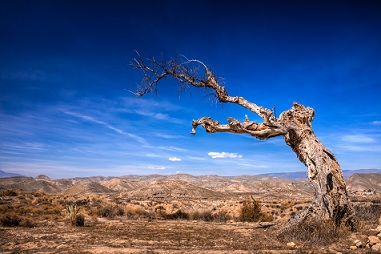Establishing the link between climate change and human security

Related topics
Environment & climate action International cooperation Belgium Cyprus Germany Spain United Kingdom Switzerland Israel Climate action Environment Climate action, environment, resource efficiency and raw materials Norway Egypt Ethiopia Japan Palestine, State ofdate: 17/01/2014
Project: Climate Change, Hydro-conflicts and Huma...
acronym: CLICO
See also: CORDIS
Contact: Contact
Coordinated by the Universidad Autonoma de Barcelona, CLICO mobilised 14 research teams and brought together for the first time some of the world's leading researchers in water resource, vulnerability, and peace and security studies. The three year project, which began on 1 January 2010, examined seven areas where droughts or floods pose threats to human security. The areas covered ranged from Niger, Sudan, the Jordan and Nile basins, to Cyprus, Italy and the Sinai desert.
With about €3 million funding under the Seventh Research Framework Programme (FP7), CLICO was part of CLIWASEC, a cluster of collaborative research projects that also included WASSERMEd and CLIMB. All three projects fell under the FP7 coordinated topic between Environment, including Climate Change (ENV), and Socio-Economic Sciences and Humanities (SSH).
“CLICO saw a large dataset of hydro-conflicts in the Mediterranean, Middle East and Sahel being compared with climatic, hydrological and socio-economic variables,” says CLICO project coordinator Giorgos Kallis of Universidad Autonoma de Barcelona. “The ultimate aim was to develop a suitable international institutional framework for dealing with the human security implications of hydro-climatic hazards,” adds Kallis.
Several CLICO case studies in Niger, Turkey and Ethiopia confirm that poverty can exacerbate vulnerability to climate stresses and human insecurity. In contrast, the link between climate change and water conflicts is, at most, indirect.
Results also illustrate that states can plan and facilitate adaptation by providing the regulatory frameworks that govern adaptation actions by individuals, groups and communities. However, too much dependence on states can reduce the capacity of communities to adapt autonomously.
Other case studies have highlighted the ambiguous effects of state-led adaptation responses. For instance, in Alexandria, Egypt, state-driven relocation from low-lying coastal lands may reduce direct risks from sea-level rise. However, it may also expose people to new risks associated with displacement and the need to secure sustainable livelihoods in new locations.
Overall, results indicate that climate change is likely to play, at most, a secondary role in creating or exacerbating water-related conflicts. Economic and political factors have been shown to be more important in this regard.
Recommendations coming from the CLICO project team include strengthening social security systems to improve human security. There is also a need for participatory decision-making where local knowledge can inform state-led adaptation efforts. Finally, CLICO research has demonstrated the need for an integrated policy approach towards adaptation
